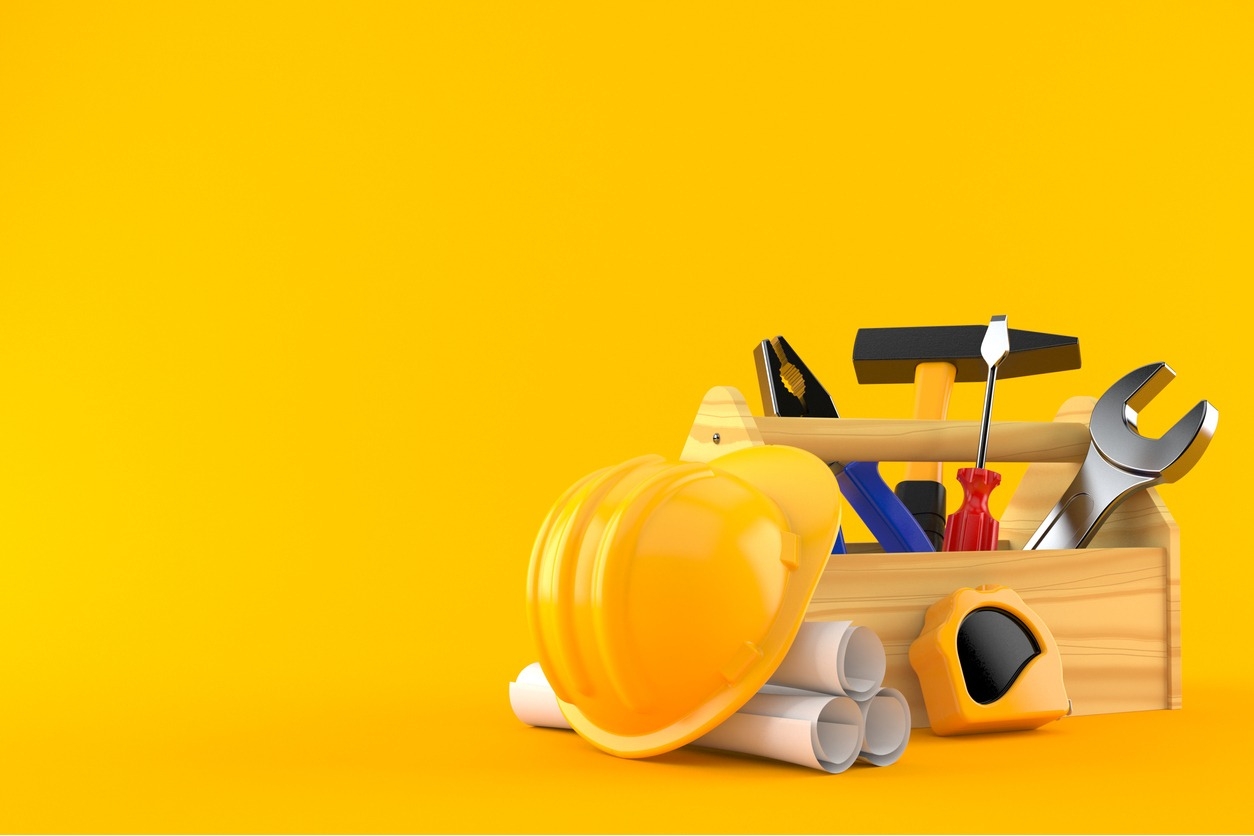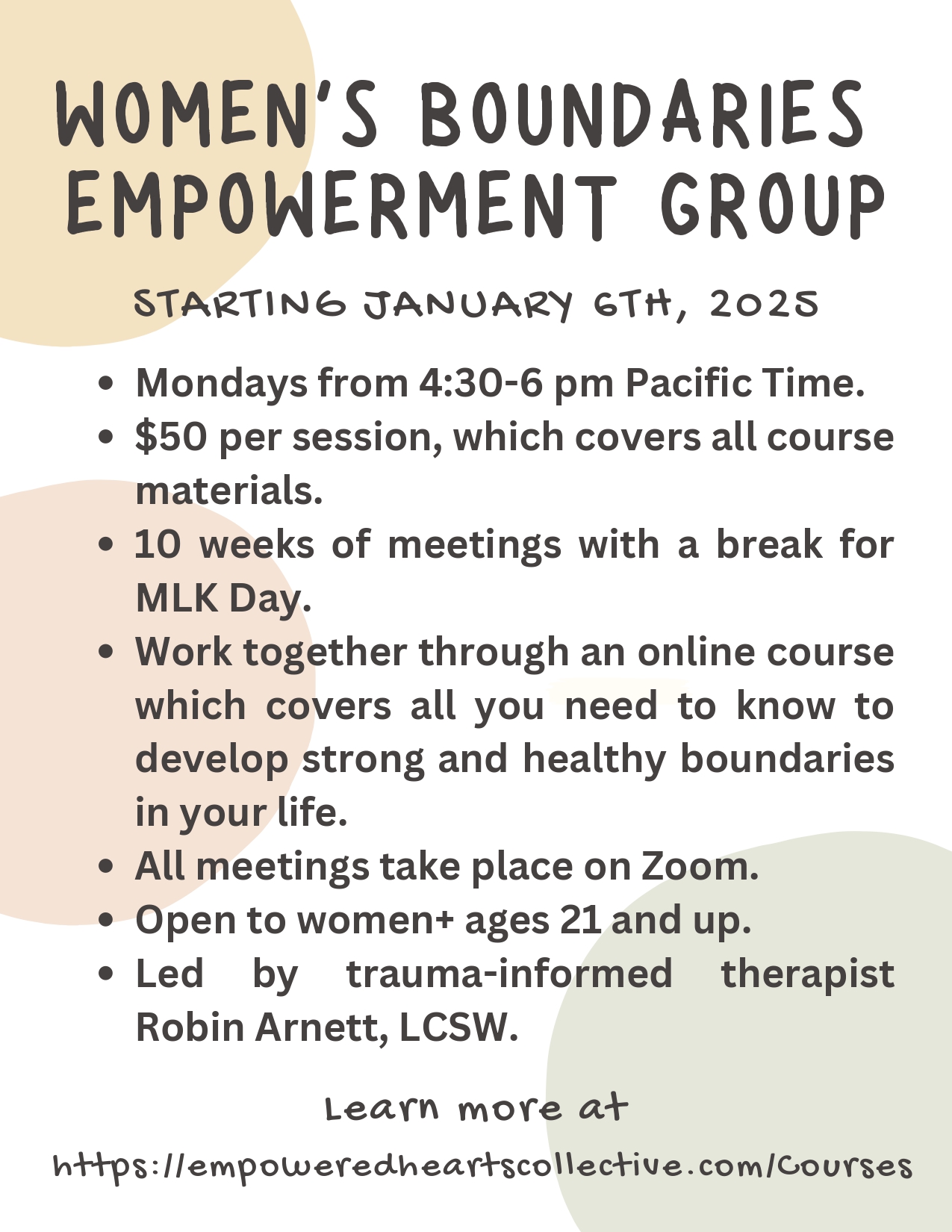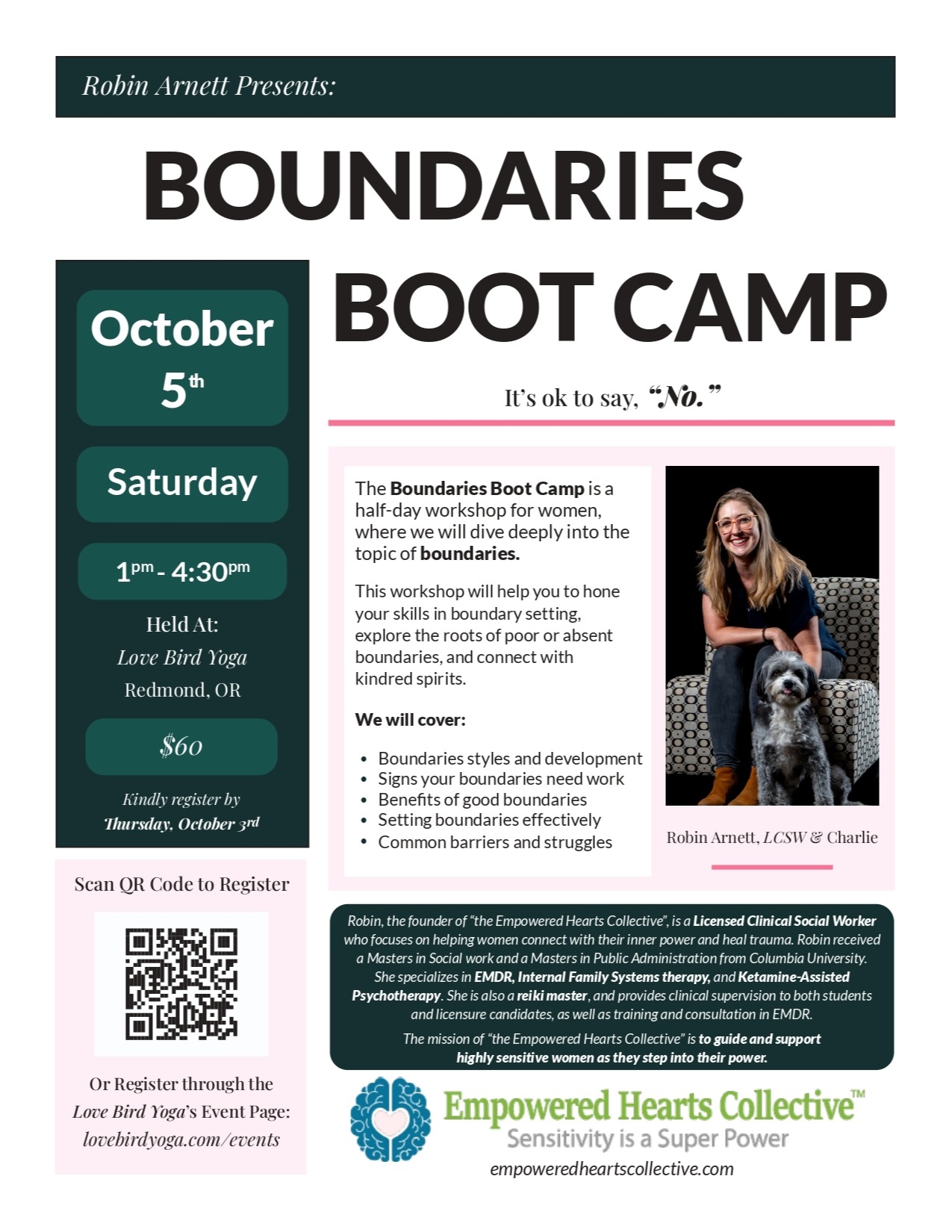Take the first step to stronger boundaries—unlock your free course, Module 7: Setting Effective Boundaries, from the Intuitive Boundaries Mastery Series.
Unlock Free ModuleCoping Tools 101
By Robin Arnett
Everyone needs ways to cope.
Judith Herman writes in Trauma and Recovery that healing happens in three stages: safety, processing, and integration. Establishing safety is essential, and shouldn't be rushed. Coping tools that help you to stay within your Window of Tolerance are a crucial component to this stage.
Coping tools are important for mental health, whatever stage of healing you are in. This blog will flesh out the different types of tools, some ways to use them, and how to make coping more accessible in your daily life.
What Is A Coping Tool?
All coping tools engage the parts of our brain that are in charge of higher functioning, particularly the prefrontal cortex. Basically, coping tools help us to access our most adult selves.
Types of coping tools:
- Physical
- Mental
- Relational
Physical Coping Tools
Physical coping tools engage your physical body. Some examples are:
- Going on a run
- Taking a cold or hot shower
- Breathing exercises
- Having a healthy snack
When we’re stressed, our bodies send us signals telling us that we’re under threat, which can cause us to spiral quickly. Taking control back by engaging the prefrontal cortex talks back to those signals to remind us that we’re safe. For example, if you are directing your body to take deep breaths, your body registers that you’re safe enough to be able to pause and breathe, rather than needing to fight or flee.
Body-based coping tools are great for when you need to distract yourself. The solutions to our problems often develop naturally with a little time and space. We can actually make things worse when we let our anxiety get the best of us by trying to force an outcome. When we’re engaged with a physical task, like a hard workout, we are forced to get out of our heads. Other examples that I like are holding an ice cube, EFT tapping, and drinking a glass of water. All of these are great ways to get present and prevent dissociation.
Mental Coping Tools
Mental coping tools engage your mind to build you up, calm you down, and ground in the chaos. Like all coping tools, they enlist the prefrontal cortex to help you take some control of what you're experiencing.
Some examples of mental coping tools are guided visualizations, affirmations, Cognitive Behavior Therapy exercises, or even making a “to-do” list to get organized. Mental coping tools are great as a regular practice to help form new neural pathways that will help us long term. The more we practice strengthening these new thought habits, the easier it will be to access them when we’re in a stressed state.
Much of how we feel depends on the thoughts that we choose to feed. Mental coping tools help us to consciously take charge of what moves through our heads. Other go-to’s for me are practicing gratitude, meditation, and journaling.
Relational Coping Tools
More often than not, the greatest pain that we experience comes not from the problem we face itself, but from feeling like we're going through it alone. We can bear almost anything when we have support. Accessing relational coping tools reminds us of the support that we have.
When we connect to each other, we connect to something deep and primal. According to polyvagal theory, our natural first response when we encounter a threat is not actually to fight, flee, or collapse, but to turn to each other. This response lives deep in our DNA as a species that’s survived by living in groups.
Relational coping tools are pretty simple. In essence, you are finding a way to connect with people that feel safe and loving to you. Some great go-to’s are calling a trusted relative, doing something fun with your friends, petting an animal, or connecting with a mental health professional. Remember that connection and codependence are not the same thing. It’s still each of our responsibility to solve our own problems, but it always helps to draw on support in that process.
It Works When You Work It
Coping tools only work if you actually use them. We can make the coping tools that we do have more effective by creating habits and structures around them that make them easier to access.
Some of my favorite books from the last few years have been Atomic Habits by James Clear and Tiny Habits by B.J. Fogg. Both books stress the point that we're successful in forming new habits when we make it easy.
You can set yourself up for success with using coping tools in a few ways: through reminders, routines, and support.
Reminders and Routines
Forming a habit requires repetition. You can help yourself to remember to access coping tools by setting an alarm as a reminder to ground throughout your day. You can also use post-it notes with affirmations or reminders to breathe.
Know that coping tools are part of a healthy life, and you’ll need to buy-in to spending that purposeful time for your mental health. Healthy routines and a grounded nervous system will actually contribute to your productivity over time, so don’t skimp on what’s important, but not urgent.
Support
The people around you should want you to be happy and successful. Ask them to help you remember to use coping tools when you’re overwhelmed, and talk with them about some of your most reliable go-to’s. You can also ask for tips and suggestions that have worked well for them. Therapists and coaches are great resources for new tools.
Taking Charge
Regularly using coping tools helps you take charge and be the adult in your own life. When you know you have access to ways to feel better, you feel empowered, grounded, and stable. You’ll also be preparing yourself well to dive deeper into processing work if that’s where you’re headed.
What are some of your favorite tools? Take this blog further by making a list and setting an intention for how to use them more often. I guarantee you are using coping tools already whether you’re aware of it or not. If you don’t feel like you have many yet, talk to a therapist or trusted friend.
Inspired to build your coping toolkit? Reach out to learn more about coping resources and building your skillset.


